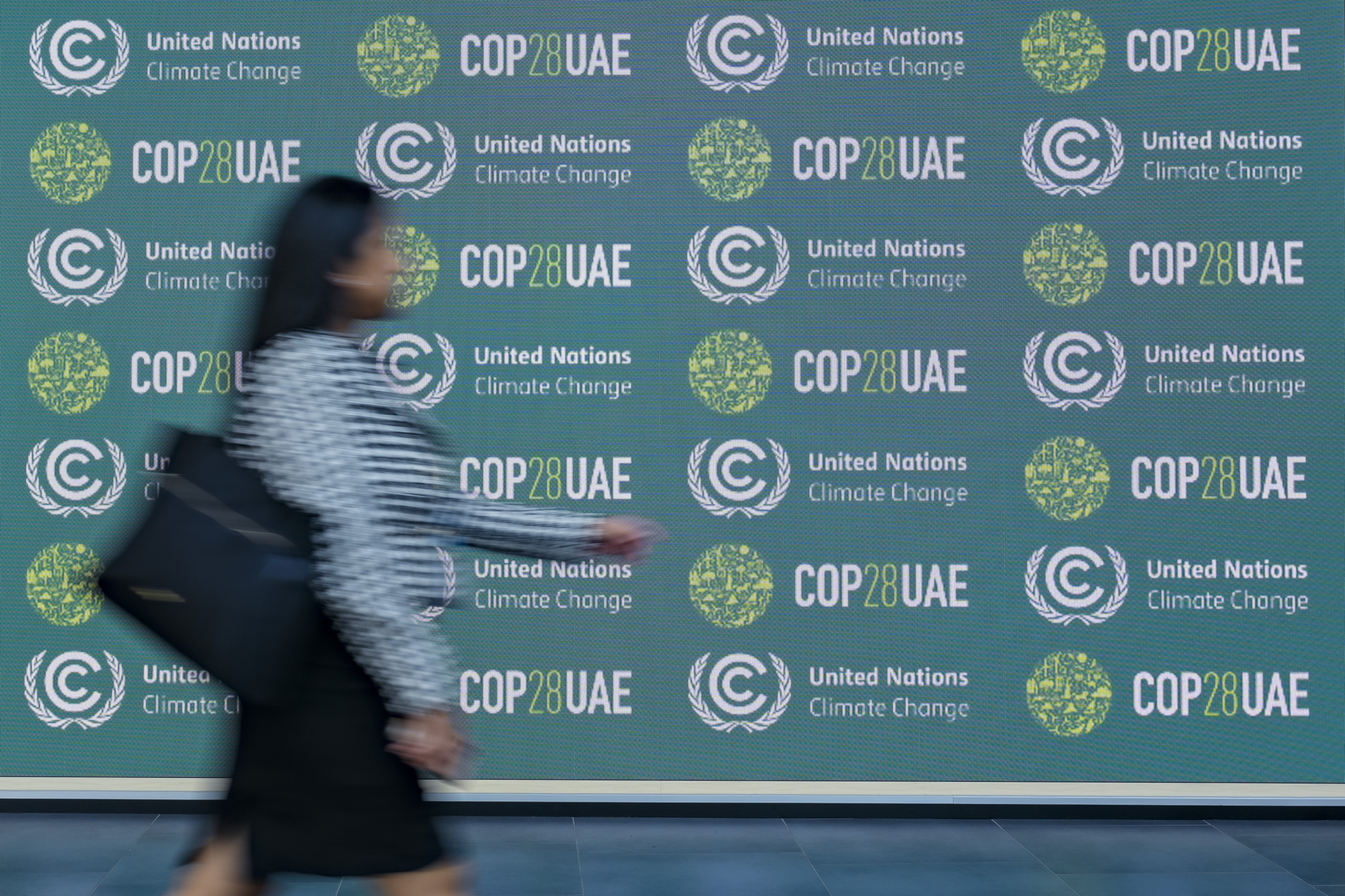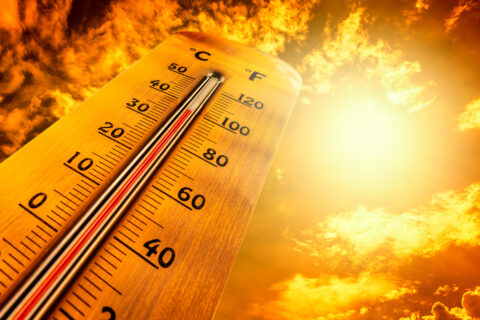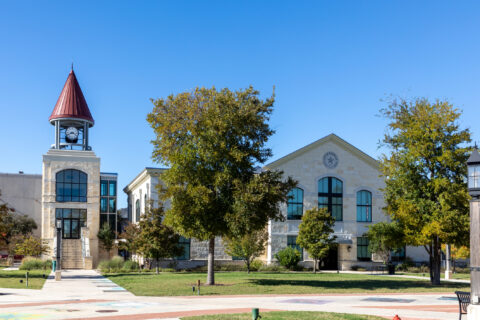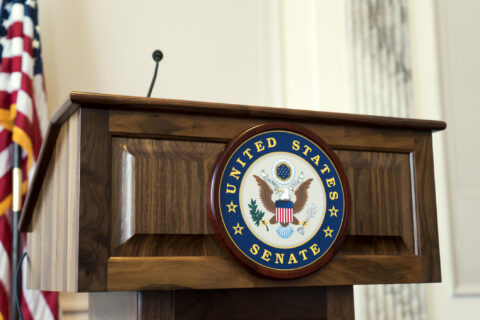Exchanging local and international perspectives at COP28 is vital for meeting global climate goals
Seventy-five percent of global greenhouse gas emissions come from cities, towns and villages. Mayors and local leaders are critical decision-makers in shaping global climate goals to meet local needs. For the first two weeks of December, government leaders, NGOs, activists and scientists from around the world are convening to discuss, negotiate and advocate for agreements and the next steps to take bold and collective action on climate change. The 28th United Nations Conference of the Parties of the United Nations Framework Convention on Climate Change (COP28) is underway in Dubai, United Arab Emirates from Thursday, November 30, 2023, to Tuesday, December 12, 2023.
As the first Conference of the Parties (COP) to heavily center local action, national and subnational governments will continue to advance the Glasgow Climate Pact and the Sharm el-Sheikh Implementation Plan, push for more formalization of subnational governments’ role in global climate negotiation, reinvigorate ambitious nationally determined contributions (NDC) and establish adaptation goals based on locally specific resilience needs and solutions.
Cities Day at COP28
Cities, towns and villages are where the rubber meets the road on climate action implementation. Thus, municipalities have a critical role to play at COP28. The convening serves as a pivotal opportunity to shed light on the role that local governments play as key champions in the fight against climate change.
To emphasize the importance of local government action, the COP Presidency is designating a thematic “Multilevel Action, Urbanization, and Built Environment Day” (Cities Day) on December 6. Cities Day will involve thematic sessions, side events and press conferences about the challenges and critical action cities and other local-level actors are taking to uniquely implement climate action within their communities. The conference will also include the Second Ministerial Meeting on Urbanization and Climate Change, an inclusive dialogue hosted by the COP28 Presidency intended to accelerate local climate finance and cultivate a collaborative response to the challenges climate change poses in urban settings.
City leaders have a plethora of opportunities to engage both on the ground at COP and virtually from the U.S. The following sessions will be held during Cities Day to examine what municipalities are doing to implement equitable, localized climate action:
- The Local Governments and Municipal Authorities (LGMA) Multilevel Action and Urbanization Pavilion: Organized by partners such as ICLEI and UN-Habitat, this pavilion acts as a homebase for cities and regions at COP28. With more than 100 sessions to livestream and attend, be sure to check out their agenda for events on Cities Day.
- The Resilience Hub: Catch a livestream about greening American cities or how to build equitable and inclusive urban resilience. To learn more and register virtually for Resilience Hub events, click here.
- The NDC Partnership Pavilion: Cities Day sessions include themes on leading just and equitable transitions in local and regional governments as well as catalyzing private-sector finance for NDC implementation.
- The Ozone to Cool Zone Pavilion: Conversation at the pavilion includes energy efficiency in the built environment as well as pathways towards sustainable cooling ecosystems.
- A complete list of pavilions hosting events can be found here.
Cities at the Center of this Decade of Climate Action
Cities are at the center for implementation of global adaptation and mitigation goals, as more than two-thirds of the world population are projected to live within urban areas by 2050. Now more than ever, cities are leading the charge to transform global climate goals into practical, just and localized action. Specifically, major events during COP28, such as the global stocktake and the Local Climate Action Summit, will serve as a pivotal moment for cities, towns and villages to advocate for collaborative, multilevel action.
- The Global Stocktake: This will be the first-ever global stocktake, a process where countries and stakeholders assess their collective progress (or lack of) toward goals established in the Paris Climate Agreement every five years. By evaluating their standings, this report card will help policymakers and stakeholders strengthen their climate policies and commitments in their next round of NDCs.
- The Local Climate Action Summit: Bringing together national and local leaders, the COP28 Presidency and Bloomberg Philanthropies are hosting a first-of-its-kind summit to transform climate finance, fast-track the energy transition and strengthen local-level adaptation and resilience. Catch the recording of the Summit’s livestream from December 1here.
Get Involved with your Municipality
Across the country, cities are hosting their own “mini-COP” or local stocktake events, bringing the global dialogue to city hall to show what localized, high-ambition climate action should look like. Hoboken, NJ, has already hosted their own Climate Stocktake and mini-COP in 2023. Gathering nearly 50 stakeholders from across the community, the city evaluated existing climate and sustainability initiatives and identified gaps in the city’s 2019 Climate Action Plan. This dialogue will not only help to inform future policies and better reflect localized action during Hoboken’s participation at COP28 but has also helped to re-energize climate ambition in reaching a carbon neutral Hoboken by 2050.
Local stocktakes are invaluable to incorporate a critical, local perspective into larger UNFCCC action. It is an opportunity to identify points of tension between local and national climate policy, advance youth involvement in local climate processes and center climate justice within your municipality. At Denver’s local stocktake, justice and equity took the centerstage in their community dialogue. To successfully address local challenges of extreme heat, wildfires and drought, inclusive strategies such as integrating diverse community perspectives into steering committee representation and establishing guiding equitable frameworks to better inform city initiatives like their Climate Fund are crucial elements for achieving community-wide change. Although the City has taken great strides in propelling local climate action, the stocktake affirmed that a collective, more equitable and informed vision is vital to strengthen Denver’s current adaptation and mitigation efforts.
Interested in hosting your own mini-COP with your community? Learn how to here! As the window for meaningful change closes, city networks and mayors must act now and strengthen multilevel cooperation to reduce the harmful impacts of climate change in cities, towns and villages around the world.








